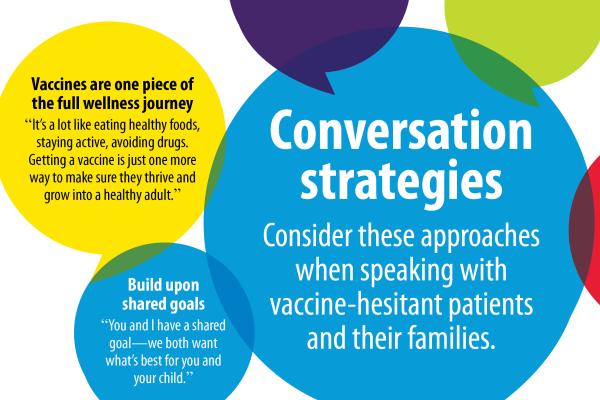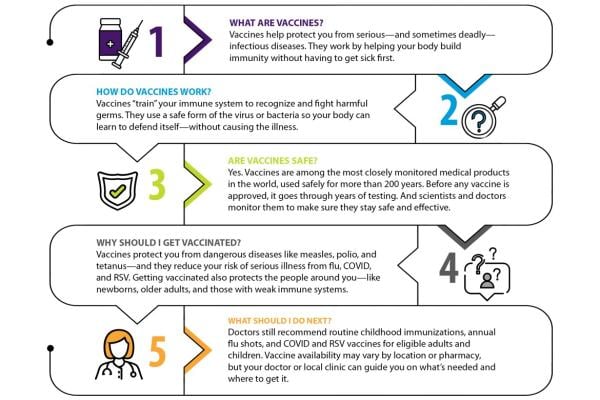With the increase in conflicting information about vaccines, some patients may be confused about how to keep their families and themselves healthy.
The AMA encourages patients to talk to their doctor. Physicians have the proper training and knowledge to help patients make informed health care decisions. Find helpful tips here to start those conversations, for physicians and patients.
For physicians
For your patients
More AMA vaccination resources
Stay up to date on the latest vaccination news, guidance, research, advocacy and continuing medical education (CME) from the AMA.





